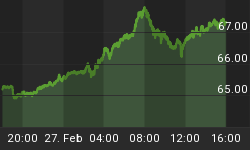When US money supply measured by M2 stood at $11 trillion in December 2013, I calculate that total broad money of the next largest 50 countries ranked by GDP amounted to the equivalent of a further US$67 trillion at current exchange rates. And that's only on-balance sheet: we must add in global shadow banking, estimated by the Financial Stability Board to have been an extra $67 trillion in 2011, probably about $75 trillion today, given its recent rapid growth in China. So when we look at US broad money supply, we should be aware there is a further mountain of money thirteen times as big ultimately based on the dollar.
As long as bank lending, industrial investment and consumption are all expanding, the sun smiles. It's when it stops that problems arise, and why markets reacted badly to the idea of tapering and are increasingly nervous about China's credit bubble and attempts to rein it in.
More specifically the danger arises from a slow-down and possible reversal of cross-border investment, particularly with emerging economies. Between 2000 and 2007 investment from advanced economies into emerging markets grew at an annual compound rate of about 18%, and between 2008 and 2011 it slowed to about 5% (McKinsey, 2013 http://www.mckinsey.com/insights/global_capital_markets/financial_globalization). The beneficiaries of this investment, global financial assets (all equities, bonds and loans) averaged growth of only 1.9% annually in dollar terms between 2007 and 2011. If we could measure it today the overall return would probably be a big fat zero.
So whatever analysis of individual countries might tell us, it has been easy to miss the threat of a deepening global recession, a risk increased by diminishing cross-border flows. What a time for the Fed and the Peoples Bank of China to decide to reduce the rate of monetary expansion for the two largest economies! These actions are too late to achieve the hoped-for orderly exit from excessive monetary expansion.
If cross-border investment flows reverse, as they are now threatening to do, banks and multinational businesses will run for cover and the carry-trade will rapidly unwind. And when fear of losses finally triumphs over greed for profits the weaker currencies are usually the first to suffer.
The relationship between these currencies and the dollar is now being tested in the markets. Eventually, of course, the Fed will have to resume unlimited monetary expansion to buy off a global economic and financial crisis. In doing so it will probably take comfort in the precedent set when dealing with Lehman. We cannot be so certain of the effects of China's future monetary policy, other than knowing that in troubled times Chinese citizens turn to gold, along with all the other Asian peoples acutely aware of gold's ability to store wealth through difficult times.
The last crisis was just the banks. This time we are looking at a potential popping of a full-blown global currency bubble, which was generated as the solution to the last crisis. And this new bubble is all supported on an inflated US monetary base of $3.8 trillion. That's bubbly gearing of nearly 40 times, or 163 times the monetary base on the eve of the Lehman crisis.















